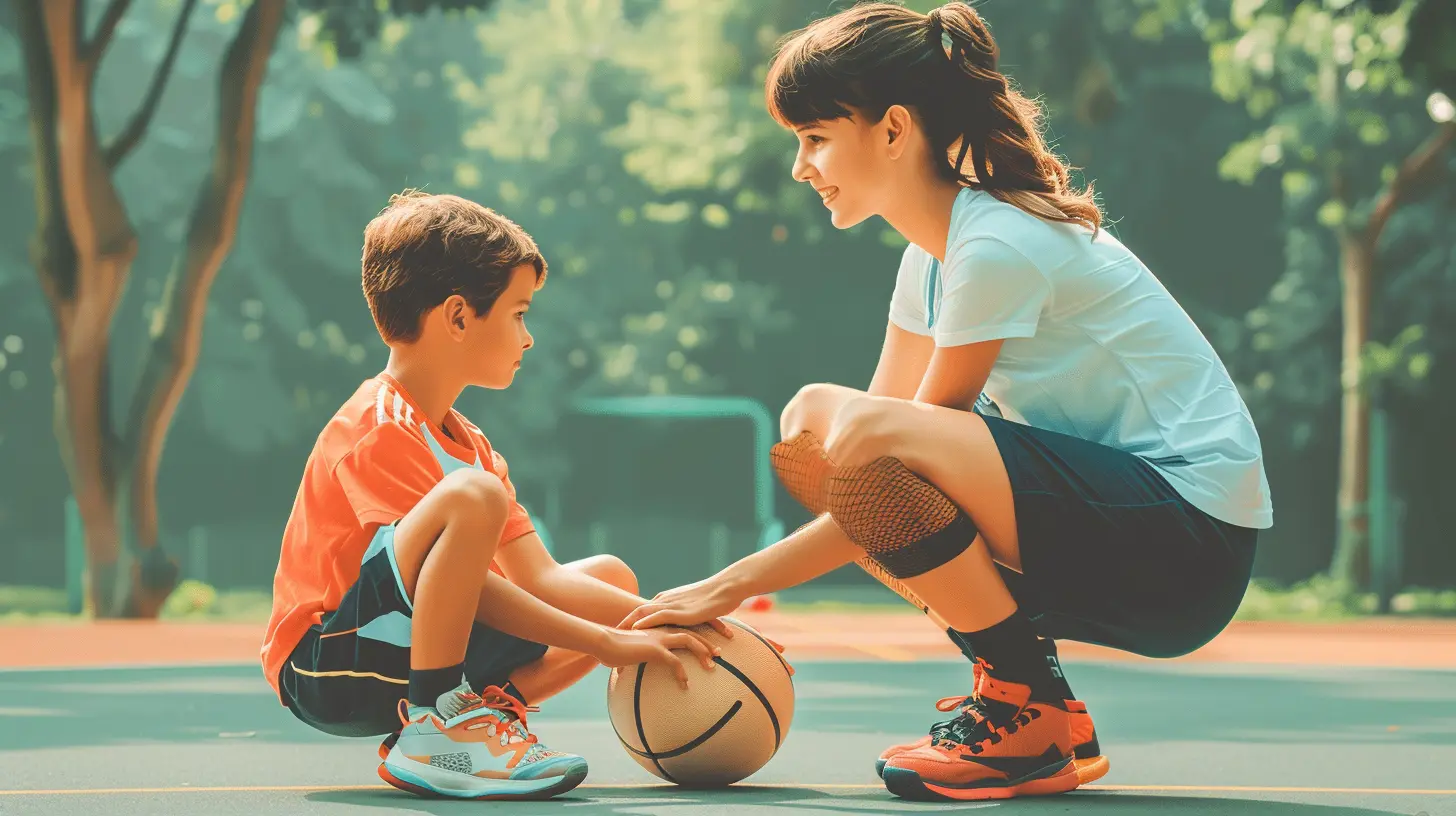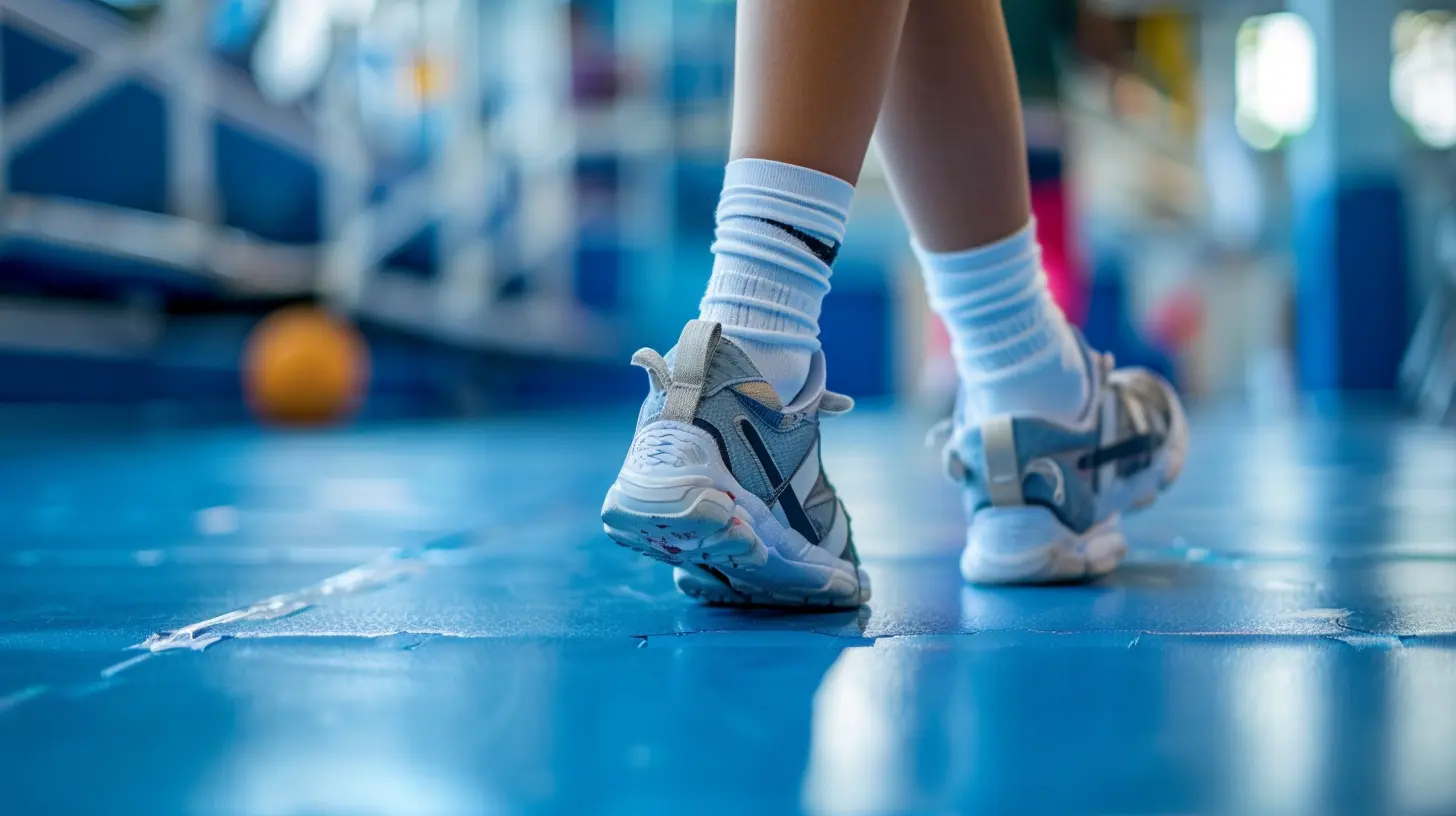How Parents Can Support Their Child Post-Injury in Sports
2 June 2025
Sports injuries can be tough on kids—physically and emotionally. One moment, they’re running at full speed, chasing their dreams, and the next, they’re sidelined, dealing with pain, frustration, and uncertainty. As a parent, watching your child go through this can be heartbreaking. But here’s the good news: you have the power to be their biggest support system during recovery.
Helping your child navigate a sports injury isn’t just about healing bones or muscles; it’s about healing their confidence, emotions, and motivation. So, how can you be there for them in the best possible way? Let’s break it down.

1. Acknowledge Their Feelings
First things first—let them process their emotions. Getting injured can make kids feel frustrated, scared, or even embarrassed. Some might worry about losing their spot on the team, while others fear they won’t return to the sport as strong as before.Instead of brushing off their concerns with "You'll be fine soon," validate their feelings. Say things like:
- "I know this must be tough for you."
- "It’s okay to feel upset—this is a big deal."
- "We’ll get through this together."
Let them vent, cry, or even be grumpy. It's all part of the healing process.

2. Focus on Their Physical Recovery
While emotions matter, physical healing is the first priority. Work closely with doctors, physical therapists, and coaches to ensure your child is following the right recovery plan.Follow Medical Advice
If the doctor prescribes rest for a few weeks, make sure your child listens—even if they’re itching to get back. Pushing too hard too soon can make things worse.Encourage Proper Nutrition
Recovery isn’t just about resting; the right foods can speed up healing. Foods rich in protein, calcium, and vitamins help rebuild muscles and bones. Some great choices include:- Lean meats, eggs, and fish (protein for muscle repair)
- Dairy products, leafy greens, and nuts (calcium for bone health)
- Fruits and veggies (vitamins to boost immunity and recovery)
Help with Rehabilitation Exercises
If physical therapy or home exercises are required, be their cheerleader. Make sessions fun, time them, or even do exercises together to keep them motivated.
3. Keep Their Spirits High
Being off the field can make kids feel disconnected. They might miss their teammates, routine, and the sense of accomplishment that sports bring. Here’s how you can help:Help Them Stay Involved with Their Team
Even if they can’t play, they can still be part of the team. Encourage them to attend games, cheer from the sidelines, or assist with coaching younger players. Staying involved keeps their passion alive and eases the fear of being "left out."Remind Them of Their Strengths Beyond Sports
Injuries can make young athletes doubt themselves. This is the perfect time to remind them they’re more than just a player. Encourage them to explore hobbies, focus on academics, or develop new skills. This can be a great confidence boost while they recover.Set Small, Achievable Goals
Instead of thinking about the long road ahead, break it down into smaller victories. Celebrate milestones like:- First pain-free day
- Completing a week of therapy
- Walking or running without discomfort
These little wins keep motivation high and give them a sense of progress.

4. Keep an Eye on Their Mental Health
Physical pain is temporary, but the emotional toll of an injury can last longer. Some kids may experience anxiety, stress, or even signs of depression.Be Aware of Mood Changes
If your child suddenly becomes withdrawn, irritable, or uninterested in things they once loved, don’t ignore it. Ask them how they're feeling and create a safe space for open conversations.Encourage a Positive Mindset
Instead of dwelling on what they can't do, focus on what they can do. Encourage them to visualize their comeback. Watching motivational sports documentaries or reading stories of athletes who’ve overcome injuries can be inspiring.Consider Professional Support
If you notice prolonged sadness, low self-esteem, or signs of depression, don’t hesitate to seek help from a counselor or sports psychologist. Mental recovery is just as crucial as physical healing.5. Be Patient—Healing Takes Time
Every injury has its own recovery timeline. Some kids bounce back quickly, while others take longer. It’s important to remind them (and yourself) that healing isn’t a race.Encourage them to take things one step at a time, without rushing back into action too soon. Many athletes reinjure themselves by returning before they’re fully ready. Help them understand that slow progress is still progress.
6. Prepare for Their Comeback
Once your child is cleared to play again, ease them back into their sport gradually. Returning too aggressively can risk another injury.Here’s what you can do:
- Build up strength first – Encourage light workouts before jumping into full training.
- Stress the importance of warm-ups and cool-downs – Proper stretching can prevent future injuries.
- Remind them to listen to their body – If they feel pain, they should stop immediately.
Most importantly, reinforce that it’s okay if they’re not performing at 100% right away. Confidence and stamina take time to rebuild.
7. Teach the Bigger Life Lesson
Sports injuries can feel like a huge setback, but they also teach resilience, patience, and perseverance. Remind your child that challenges make them stronger—not just in sports, but in life.Many legendary athletes have faced serious injuries and come back even better. Your child’s journey doesn’t end with injury; it’s just a detour on the road to success.
Final Thoughts
Supporting your child post-injury in sports isn’t just about bandages and doctor visits. It’s about being their rock when they need you most. From offering emotional support to guiding them through physical recovery, your role as a parent is crucial in their comeback journey.So, stay patient, keep encouraging them, and remind them that setbacks don’t define them—their determination does. Before you know it, they’ll be back in action, stronger than ever.
all images in this post were generated using AI tools
Category:
Kids And SportsAuthor:

Steven McLain
Discussion
rate this article
3 comments
Etta McLain
Your support makes all the difference in healing.
June 14, 2025 at 4:55 AM

Steven McLain
Thank you! Your encouragement is vital for recovery and resilience.
Xylo McAndrews
Empathy and encouragement promote healing and resilience.
June 7, 2025 at 2:37 AM

Steven McLain
Absolutely! Empathy and encouragement are vital tools for parents to help their child recover and build resilience after a sports injury.
Octavia McCune
Empathy, patience, and open communication are key to supporting your child's recovery.
June 6, 2025 at 3:28 AM

Steven McLain
Thank you for highlighting these essential qualities! They truly play a crucial role in fostering a supportive environment for a child's recovery.



